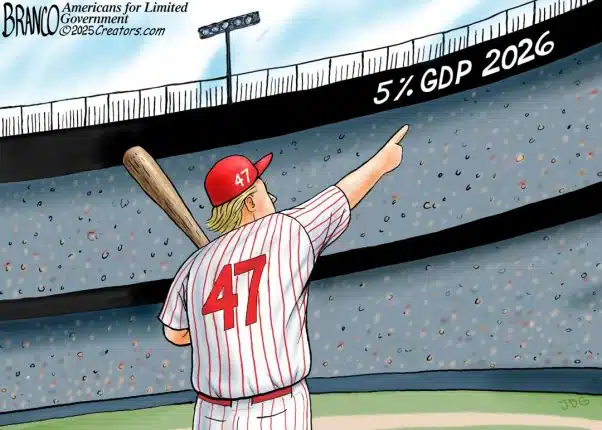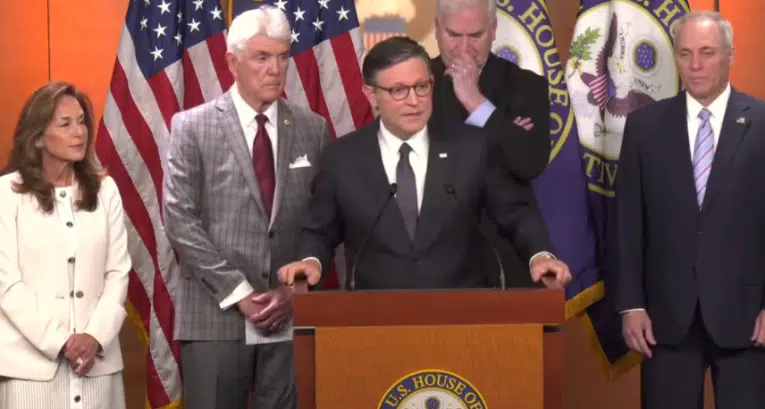The Centers for Medicare and Medicaid Services, a part of the U.S. Department of Health and Human Services, has proposed rolling back an Obama-Era regulation that allowed union dues to be deducted from Medicaid checks. If the proposed regulation takes effect, only deductions specifically allowed by law, such as court-ordered wage garnishments or child support payments, will be permissible. Of course, any caregivers who wish to join or stay in a union could still do so. They would just need to make arrangements to pay their dues, which could easily be done by authorizing the union to draft money from their bank account.
For years, the Service Employees International Union (SEIU) has skimmed money off of Medicaid checks sent to in-home personal care workers. Many of these people care for relatives or friends and did not want to join a union. In Minnesota, 27,000 caregivers were unionized after an election in which fewer than 6,000 voted and SEIU received less than 3,600 votes. Unsurprisingly, some had no idea when the unionization election was being held and were surprised when they noticed that money had been deducted from their Medicaid checks without their authorization. Of course, SEIU does little for these home health care providers: it does not negotiate their hours, breaks, or tasks, file grievances, etc.
To grow its membership, SEIU has been accused of very aggressive tactics from hassling caregivers and their patients to forging signatures on unionization cards. Home care workers who expressed no interest in supporting the union had organizers call repeatedly and show up at their homes to try to sell them on the union. Unfortunately, once SEIU succeeds in unionizing caregivers, it is very difficult to get rid of the union as some workers discovered. The difficulty of firing the union under the current system is one of the reasons why this proposed rule is so needed.
SEIU’s aggressive tactics and lobbying have paid off — for the union. According to one estimate, SEIU collects $200 million a year from 500,000 caregivers as a result of this scheme. To help put these figures in perspective, SEIU’s national headquarters reports that the union has over 1.9 million members and that the headquarters had revenues last year of nearly $315 million.
SEIU also has a history of fighting tooth-and-nail to keep collecting money from home care workers. In 2014, the Supreme Court ruled in the Harris v. Quinn case that home health care providers could not be forced to pay agency fees to a union. SEIU has fought back aggressively by getting friendly state politicians to pass favorable laws. For example, some caregivers have been required to attend meetings with union representatives. In addition, when the Freedom Foundation launched a campaign to inform home care providers about their right to leave their union, SEIU lobbied for a change in the law to make it more difficult for the foundation to get the caregivers’ contact information. If SEIU were truly helping home care workers, then why has the union been so frantic to try to keep its members in the dark about their rights?
With so much money at stake, SEIU will no doubt do everything within its power to prevent this proposed rule from taking effect. If the rule does move forward, SEIU will work to generate thousands of comments opposing it. SEIU can also be expected to file a lawsuit to halt the rule and to work to elect more bought-and-paid-for politicians to rescind the rule should it take effect.
The Trump Administration’s proposed rule protecting Medicaid payments from unnecessary, and often unwanted, dues deductions is an important first step in the right direction. After all, taxpayers provide funds to pay caregivers to assist the elderly and disabled, not to fill the coffers of power-hungry unions. The sooner the rule is finalized and takes effect, the sooner these abuses of workers and taxpayers will end.
As originally published in SEIU Monitor
Richard McCarty is Director of Research at Americans for Limited Government Foundation.







